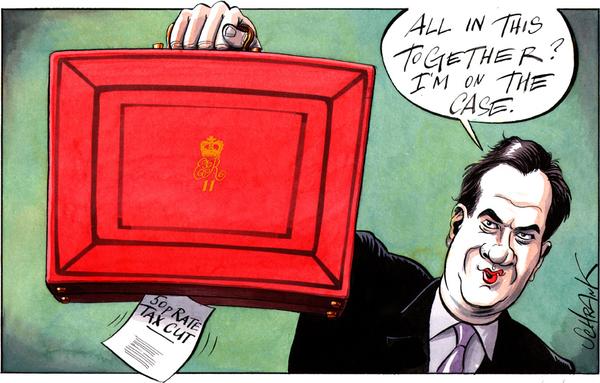The Budget and the Art of the Possible
At the recent National Association of Pension Funds Conference in Edinburgh I asked Tony Blair which was the greater block to the creation of change – the Political or the Bureaucratic. He said emphatically that it was the Political. This surprised me a bit – I thought he would say it was both. The answer was interesting also because Blair had three terms as PM during which the Opposition was weak and during which he had a pretty united Party behind him (Iraq the exception as always).
I suspect that if you had asked Margaret Thatcher the same question midway through her Premiership she would have said the the main block to change was bureaucratic. Not for nothing was her favourite TV programme “Yes Minister”! She never quite cracked the Civil Service but until the end of her years in power she got the Conservative Party to toe her line. She didn't bother that much about the Wets!
The above a reflection of the fact that as Bismarck said “Politics is the Art of the Possible”. So the management of the economy over the past three years has been conducted within the boundaries of what Cameron/Osborne judge to be politically possible. Working in a Coalition has been trying and has placed huge constraints on what I suspect the Tories would really have liked to have done. Where cost/benefit is less an issue, e.g. on Education, they would no doubt say that successes have been achieved. Certainly Gove is pursuing a set of policies that would not upset too many of the Tory faithful. But on the big-ticket items such as the NHS and Welfare the Government has had its hands tied - partly through their own choice. I have no doubt that deep down the Cameron/Osborne would like a radical change to the NHS with it becoming a much reduced charge on taxation revenues. The irony is that this is what opponents of reform think is actually happening but in fact the NHS budget has not been reduced. It’s the worst of both worlds – the Government’s handling of the NHS has been roundly condemned and yet there are no real expenditure savings accruing anyway!
So in the Budget the political will inevitably dominate. The Tory Right, a huge thorn in Cameron’s flesh, will hammer away at anything that doesn't produce real falls in spending. The LibDems, with the confidence of Eastleigh behind them, will argue for a Keynesian boost (Vince Cable is well on the case). The Labour Party will play politics lambasting the economic mismanagement on the one hand and calling for a borrowing driven spending boost on the other.
I think that Osborne will try and please the Tory Right with some fiscal act such as a 1% reduction in Corporation Tax or maybe a small reduction in National Insurance contributions.He may also have an infrastructure investment surprise. As a Pension Fund Trustee (and a bit of an unreformable Keynesian!) I would welcome the creation of an attractive instrument for such investment. Maybe an “Infrastructure Bond” paying a tad over normal rates which institutional investors would find attractive. As someone concerned about Pensions I would also very much welcome a radical initiative giving substantial tax advantages to those (employers and employees) who invest in DC schemes. As a bit of a “Green” I would also welcome increases in fuel duty and other green taxes - but that won’t happen. Its the politics stupid!
Finally there is the elephant in the room which is inflation. Over history Governments have inflated their way out of economic difficulties and budget deficits. It must be tempting. I suspect Osborne has spent some time with Mr Carney already on this!

0 Comments:
Post a Comment
Subscribe to Post Comments [Atom]
<< Home